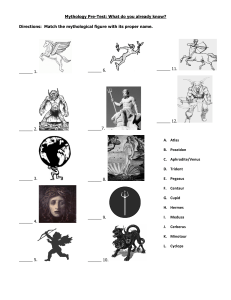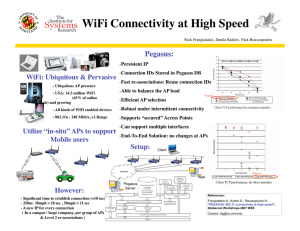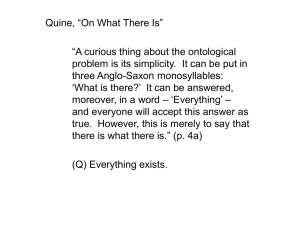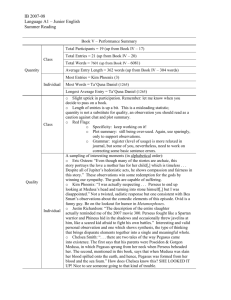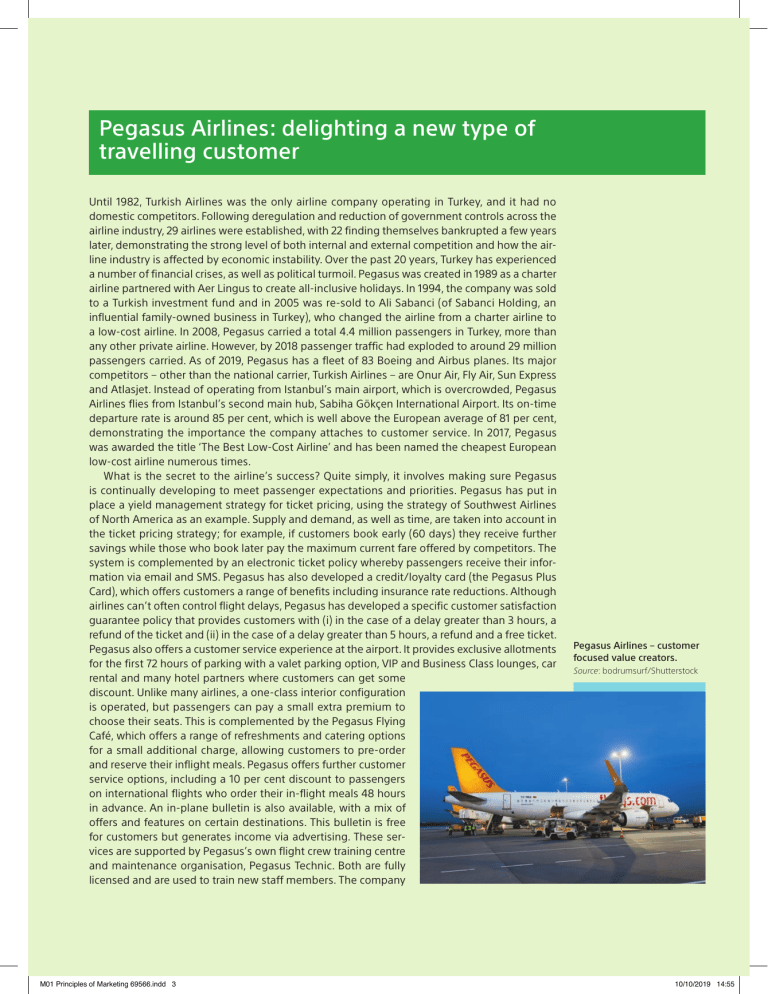
Pegasus Airlines: delighting a new type of travelling customer Until 1982, Turkish Airlines was the only airline company operating in Turkey, and it had no domestic competitors. Following deregulation and reduction of government controls across the airline industry, 29 airlines were established, with 22 finding themselves bankrupted a few years later, demonstrating the strong level of both internal and external competition and how the airline industry is affected by economic instability. Over the past 20 years, Turkey has experienced a number of financial crises, as well as political turmoil. Pegasus was created in 1989 as a charter airline partnered with Aer Lingus to create all-inclusive holidays. In 1994, the company was sold to a Turkish investment fund and in 2005 was re-sold to Ali Sabanci (of Sabanci Holding, an influential family-owned business in Turkey), who changed the airline from a charter airline to a low-cost airline. In 2008, Pegasus carried a total 4.4 million passengers in Turkey, more than any other private airline. However, by 2018 passenger traffic had exploded to around 29 million passengers carried. As of 2019, Pegasus has a fleet of 83 Boeing and Airbus planes. Its major competitors – other than the national carrier, Turkish Airlines – are Onur Air, Fly Air, Sun Express and Atlasjet. Instead of operating from Istanbul’s main airport, which is overcrowded, Pegasus Airlines flies from Istanbul’s second main hub, Sabiha Gökçen International Airport. Its on-time departure rate is around 85 per cent, which is well above the European average of 81 per cent, demonstrating the importance the company attaches to customer service. In 2017, Pegasus was awarded the title ‘The Best Low-Cost Airline’ and has been named the cheapest European low-cost airline numerous times. What is the secret to the airline’s success? Quite simply, it involves making sure Pegasus is continually developing to meet passenger expectations and priorities. Pegasus has put in place a yield management strategy for ticket pricing, using the strategy of Southwest Airlines of North America as an example. Supply and demand, as well as time, are taken into account in the ticket pricing strategy; for example, if customers book early (60 days) they receive further savings while those who book later pay the maximum current fare offered by competitors. The system is complemented by an electronic ticket policy whereby passengers receive their information via email and SMS. Pegasus has also developed a credit/loyalty card (the Pegasus Plus Card), which offers customers a range of benefits including insurance rate reductions. Although airlines can’t often control flight delays, Pegasus has developed a specific customer satisfaction guarantee policy that provides customers with (i) in the case of a delay greater than 3 hours, a refund of the ticket and (ii) in the case of a delay greater than 5 hours, a refund and a free ticket. Pegasus also offers a customer service experience at the airport. It provides exclusive allotments for the first 72 hours of parking with a valet parking option, VIP and Business Class lounges, car rental and many hotel partners where customers can get some discount. Unlike many airlines, a one-class interior configuration is operated, but passengers can pay a small extra premium to choose their seats. This is complemented by the Pegasus Flying Café, which offers a range of refreshments and catering options for a small additional charge, allowing customers to pre-order and reserve their inflight meals. Pegasus offers further customer service options, including a 10 per cent discount to passengers on international flights who order their in-flight meals 48 hours in advance. An in-plane bulletin is also available, with a mix of offers and features on certain destinations. This bulletin is free for customers but generates income via advertising. These services are supported by Pegasus’s own flight crew training centre and maintenance organisation, Pegasus Technic. Both are fully licensed and are used to train new staff members. The company M01 Principles of Marketing 69566.indd 3 Pegasus Airlines – customer focused value creators. Source: bodrumsurf/Shutterstock 10/10/2019 14:55 Part 1 Defining marketing and the marketing process regularly receives awards and recognition for, among other things, its management strategy; initiatives in website development; and its marketing strategy, which employs a new approach to advertising that includes viral marketing, flash campaigns and mobile campaigns. This strategy has succeeded in making Pegasus the most searched airline in Turkey on Google. Although the tangible amenities that Pegasus offers are likely to delight most travellers, General Manager Sertaç Haybat, recognises that these practices are not nearly enough to provide a sustainable competitive advantage and that Pegasus must always present its customers with the most economical flight opportunities. Here the importance of the crew training centre remains crucial. Haybat emphasises that a culture that breeds trust is the most crucial factor. It’s this personal culture that gives Pegasus’s customer service an edge. Indeed, taking care of customers starts as early as a customer’s first encounter with the Pegasus brand and website. Pegasus’s employees work as a team with their goal being a common understanding of the airline’s long-term objective to provide a democratic environment in which everyone shares their ideas freely. Training, as well as continuous development, is provided to ensure regular career progression and high levels of motivation through a solid performance system and regular personal feedback. Early in the process, Pegasus selects the people who best exhibit these values while directing the right person to the right department at the right time. The last tenet of Pegasus’s customer-service strategy lies in the regularly scheduled and innovative destinations it offers. Not only does Pegasus share planes with Pegasus Asia and Izair, but it also has charter and scheduled services to around 120 airports in Europe and Asia. Pegasus operates regular flights to Georgia and Lebanon, providing additional destinations outside of Europe, thus maximising Turkey’s short flight opportunities. This prompted speculation in the media about the changing preference of air travellers where low-cost companies are seen as a sustainable substitute to middle- and high-cost traditional carriers. Customers are the most important aspect of any service industry. Since the global recession, many airlines have seen a drop in passenger numbers, and it is a challenge to achieve and sustain profitability. In the case of Turkey, other factors provide further opportunities for the airline industry. On the one hand, the economy is growing at a faster rate than the rest of Europe, and on the other hand, as is the case in many emerging countries and in traditional industrial areas of developed economies, a substantial expatriate population exists. New migrants or integrated second- or third-generation migrants usually provide opportunities for travel due to cultural affinities and understanding. Regular holidays or business-related trips ‘home’ can create a good foundation in terms of overall capacity planning. In terms of weekly seat capacity, Pegasus currently ranks in the top 30 among European airlines. While most airline customers are loyal because of frequent flyer programmes, in the case of Pegasus and Turkey in general, further affinities can be developed and sustained, including a certain sense of nationalist pride or nostalgia. History can also provide potential future markets. Countries such as Azerbaijan, Turkmenistan, Uzbekistan and others around the Black Sea region are long-term trading partners of Turkey and have been growing rapidly since the breakup of the USSR in 1991. This potential is also opening up opportunities with countries in the Middle East, which have large, young markets both in terms of tourism and business. However, Pegasus customers want more in terms of social network relationships with the brand and, therefore, Pegasus aims to keep up with its customers even when they are not flying. For example, Pegasus has a Facebook page complete with a game entitling customers to win free tickets. The company also has a Twitter account, through which it offers customers special competitions. Furthermore, in association with Vodafone, a special campaign was developed called ‘mobile phone fly’, whereby consumers accumulated for each SMS an award of 5 per cent toward a Pegasus ticket discount, emulating the ‘shop and miles’ strategy of traditional airlines. Over time, Pegasus hopes to create a sustainable relationship with its customers while leveraging the possibilities of social networks and other digital technologies. Pegasus’s strong word of mouth has also been important in the airline’s success and is reflected in the words of customers on a special website titled ‘Pegasus listens to you’. Sections of the website encourage customers to generate ideas for service improvement, to debate generic questions and topics relating to the airline’s management and services, and to encourage customers to report problems they have encountered. Since its formation in 2005, 4 M01 Principles of Marketing 69566.indd 4 10/10/2019 14:55 Chapter 1 Marketing: creating customer value and engagement Pegasus has shown that a low-cost airline can deliver low fares, excellent service and steady profits. It has demonstrated that even in the airline business, entry barriers can be lowered and a powerful brand can be created. Pegasus embodies success in four marketing cornerstones: (i) it ensures successful service through safety, training and its devoted employees, (ii) it employs creative communication with its customers, (iii) it offers great destinations and easy access to international hubs, and (iv) it uses efficient management techniques, delivering low prices with a high-quality service experience. To be successful in the low-cost airline industry, great attention needs to be paid to customers’ changing travel patterns and needs. Booking flights, post-purchase evaluation through regular customer relationship management, and intangible value created by a variety of details make Pegasus a formidable brand in the low-cost airline industry.1 Today’s successful companies have one thing in common: Like Pegasus, they are strongly customer focused and heavily committed to marketing. These companies share a passion for satisfying customer needs in well-defined target markets. They motivate everyone in the organisation to help build lasting customer relationships based on creating value. Customer relationships and value are especially important today. Facing dramatic technological advances and deep economic, social and environmental challenges, today’s customers are reassessing how they engage with brands. New digital, mobile and social media developments have revolutionised how consumers shop and interact, in turn calling for new marketing strategies and tactics. It’s now more important than ever to build strong customer engagement, relationships and advocacy based on real and enduring customer value. We’ll discuss the exciting new challenges facing both customers and marketers later in the chapter. But first, let’s introduce the basics of marketing. What is marketing? Marketing, more than any other business function, deals with customers. Although we will soon explore more detailed definitions of marketing, perhaps the simplest definition is this one: Marketing is engaging customers and managing profitable customer relationships. The two-fold goal of marketing is to attract new customers by promising superior value and to keep and grow current customers by delivering value and satisfaction. For example, Dyson’s underlying philosophy of taking everyday products that don’t work particularly well and making them more efficient, more effective and simply better has rocketed Dyson to (well-deserved) global success. Facebook has attracted more than 1.5 billion active web and mobile users worldwide by helping them to ‘connect and share with the people in their lives.’ While Virgin Atlantic fulfils its motto to ‘embrace the fun spirit and let it fly’ through being hugely attractive and responsive to customer needs, wants and demands. Similarly, Coca-Cola has earned an impressive 49 per cent global share of the carbonated beverage market – more than twice Pepsi’s share – by fulfilling its ‘Taste the Feeling’ motto with products that provide ‘a simple pleasure that makes everyday moments more special’.2 Sound marketing is critical to the success of every organisation. Large for-profit firms, such as Unilever, Nestlé, Shell and Santander use marketing. But so do not-for-profit organisations, such as colleges, hospitals, museums, symphony orchestras and even churches. You already know a lot about marketing – it’s all around you. Marketing comes to you in the good old traditional forms: You see it in the abundance of products at your nearby shopping centre and the ads that fill your TV screen, spice up your magazines or stuff your mailbox. But in recent years, marketers have assembled a host of new marketing approaches, everything from Author comment Pause here and think about how you’d answer this question before studying marketing. Then see how your answer changes as you read the chapter. 5 M01 Principles of Marketing 69566.indd 5 10/10/2019 14:55
